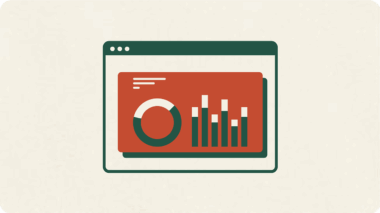The Impact of Data Analytics on Email Marketing Content
Email marketing remains a crucial component of any digital marketing strategy. To optimize these efforts, brands increasingly leverage data analytics. Understanding audience behavior through data analytics helps in creating tailored, relevant content that resonates with potential customers. Segmenting your email list based on analytics allows marketers to address specific interests and preferences. This personal touch significantly improves the likelihood of engagement. A well-informed email content strategy can elevate open rates, click-through rates, and conversions dramatically. Good analytics also reveals which content performs well, aiding in refining future campaigns. Monitoring key performance indicators gives insights into reader engagement, enabling brands to adjust their messaging accordingly. Whether it’s using A/B testing results to determine which subject lines are most effective or analyzing the times of day that generate the best responses, data analytics provides valuable guidance. Ultimately, successful email marketing content is a balance of creativity and data-driven decisions that foster genuine connections with audiences. By prioritizing analytics in their strategy, brands can build trust and loyalty, transforming email marketing into a powerful force for customer retention.
In the realm of email marketing, data analytics plays a pivotal role in shaping content. Personalization not only enhances user experience but also drives customer loyalty. Marketers who integrate data into their campaigns report higher engagement levels. Using behavioral data, businesses can craft messages that cater specifically to individual preferences and purchasing history. For instance, sending targeted emails based on previous interactions can dramatically improve open and response rates. Furthermore, tracking user engagement allows marketers to experiment with different formats and types of content. This could include promotional offers or informative newsletters, helping businesses ascertain what works best. In addition, advanced analytics tools provide businesses with insights into customer journeys, allowing a better understanding of how and when to engage. With real-time data analysis, marketers can respond quickly to trends and changes in consumer behavior, ensuring that their email campaigns are always relevant. Effective email marketing thus hinges on harnessing data analytics effectively. The insights gleaned lead to increased engagement, higher sales conversions, and ultimately greater customer satisfaction.
Segmentation for Maximum Impact
Segmentation is another powerful strategy informed by data analytics. By dividing your email list into segments based on detailed analysis of customer behaviors and interests, you can tailor your email content more effectively. Each segment can receive personalized content that speaks directly to their needs and preferences. This focused approach results in more relevant messages and significantly improves customer engagement. Marketers can create segments based on demographics, previous purchases, and behavioral patterns. Effective segmentation facilitates targeted marketing efforts, allowing brands to increase the relevancy of their email campaigns. For example, sending promotions for known products only to customers who have shown interest in similar items can drive conversions. Moreover, segmentation allows businesses to avoid overwhelming customers with irrelevant information, enhancing overall customer experience. Through consistent review of engagement data, marketers can further refine segments and personalize their outreach. The result is not just heightened interest but also increased sales. This strategy strengthens the overall effectiveness of email marketing initiatives, showcasing the undeniable impact of data-driven content strategies.
The timing of email sends is a critical factor also influenced by data analytics. Understanding when your audience is most likely to engage with emails can dramatically affect campaign success. Data analytics helps determine optimal send times, ensuring your emails reach customers when they are most receptive. Analyzing past campaigns can reveal patterns, such as specific times of day or days of the week that yield the best open and click rates. Additionally, customer time zones must be considered when planning email campaigns. This is where automated tools can assist marketers in scheduling email dispatch at the right times across different geographical locations. Furthermore, monitoring real-time responses allows for immediate adjustments to email campaigns. By continually analyzing engagement metrics, businesses can glean insights into their messaging effectiveness and alter schedules accordingly. This agility in timing enhances the relevance of email marketing efforts. In today’s competitive landscape, getting the timing right can mean the difference between an email being left unopened or sparking a meaningful customer interaction. Thus, leveraging analytics is vital to mastering email marketing timing.
Content Optimization Through Analytics
Content optimization is another area where data analytics provides significant advantage. By evaluating data on past email performances, marketers can identify which content types resonate most with their audience. Whether it is specific language, visuals, or offers, understanding what works enables brands to refine their messaging. For example, analytics might reveal that emails with clear calls to action or visually appealing images result in higher engagement. Additionally, A/B testing becomes an essential tool in this optimization process, allowing marketers to test different variations of content and formats against each other. By determining what drives better engagement, businesses can continuously improve their email strategies. However, it’s important to note that content optimization should be a continuous process. As audience preferences shift, regularly reviewing analytics ensures that email content remains current and appealing. Using analytics to inform content strategy will not only keep your audience engaged but also encourage repeated interactions. This iterative approach reflects the importance of adaptability in email marketing and ensures that content effectively aligns with evolving customer expectations.
Moreover, analytics enables marketers to address customer feedback effectively. Every interaction with email content can be a source of valuable insights. By conducting surveys or analyzing response patterns, brands can learn what their audiences enjoy and dislike. This feedback loop creates opportunities for improvement in future campaigns. Implementing feedback into content strategies allows marketers to address customer pain points and enhance user satisfaction. Additionally, utilizing data from customer complaints or questions can inform the type of content created. Addressing these issues head-on not only improves future emails but also builds customer trust. Demonstrating an understanding of customer needs and preferences strengthens relationships, proving the value of a data-driven approach. A transparent response to feedback fosters a sense of community and engagement. Supportive customer feedback mechanisms further empower data analytics; as customers see their input valued, they are more likely to engage further. Hence, analytics connects brands with their audience in meaningful ways that reinforce loyalty while enhancing email content effectiveness. So, continuous feedback and data insights are imperative for a successful email marketing strategy.
Conclusion: The Future of Email Marketing
As the digital landscape evolves, the role of data analytics in email marketing content continues to grow. These analytics provide vital insights that allow brands to craft dedicated, responsive marketing strategies. Data-driven approaches help ensure that email content remains relevant to ever-changing audience behaviors and preferences. In a world where customer experience reigns supreme, leveraging data analytics sets successful brands apart. It’s essential for marketers to understand and adapt to their audience, making data a central element of their strategies. By the same token, fostering a company culture that values analytical approaches can lead to greater overall success in marketing efforts. Continuous learning through data analytics allows businesses to stay ahead of trends and anticipate customer needs. As technology advances, so too will the tools available for data analysis, making it easier than ever to harness insights into effective email marketing strategies. Ultimately, the guide to impactful email marketing rests within the realm of data analytics. Thus, taking actionable steps towards a data-centric content strategy will be crucial for future success.
Embracing data analytics signifies a shift towards accountability and measurable success in email marketing. This transformation empowers marketers to go beyond intuition and guesswork, instead relying on informed decisions backed by real-time data. The evolution of email marketing strategies reflects an industry-wide commitment to continuous improvement, driven by analytics. Marketers who invest in these strategies reap the benefits in customer satisfaction and retention rates, fostering deeper connections with their audiences. As brands adapt to incorporating more data analytics into their email efforts, the landscape will continue to evolve. The challenge lies in staying ahead of the curve, finding innovative ways to apply data insights for optimal engagement. For marketers willing to embrace this change, the future looks very promising. In closing, leveraging data analytics in email marketing content leads to a stronger connection with customers. Personalization, timing, and optimized content create a holistic strategy that generates tangible results. By consistently refining these elements, businesses will remain relevant in their audiences’ minds, ultimately translating to improved return on investment. In summary, the impact of data analytics on email marketing content is profound and lasting.





